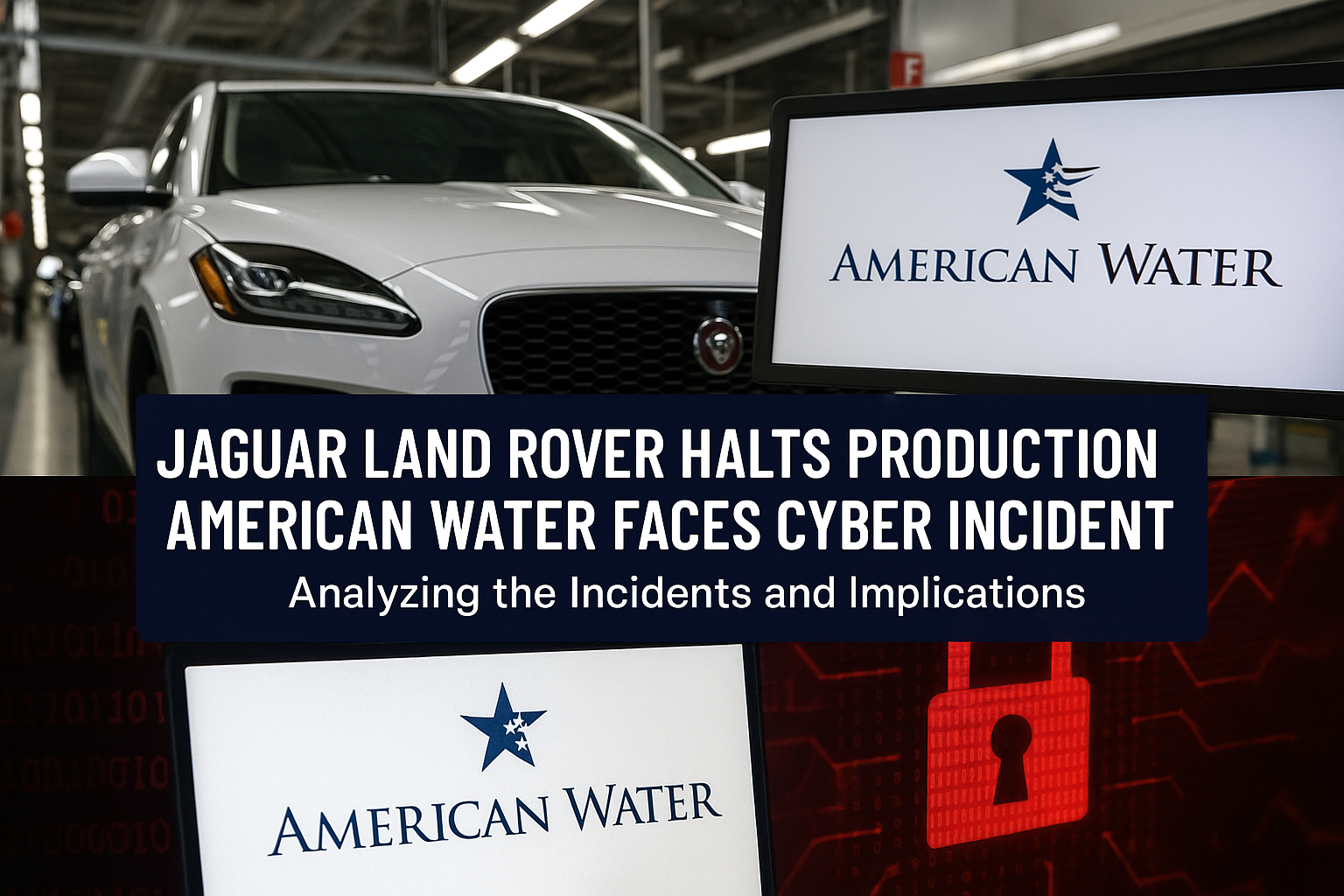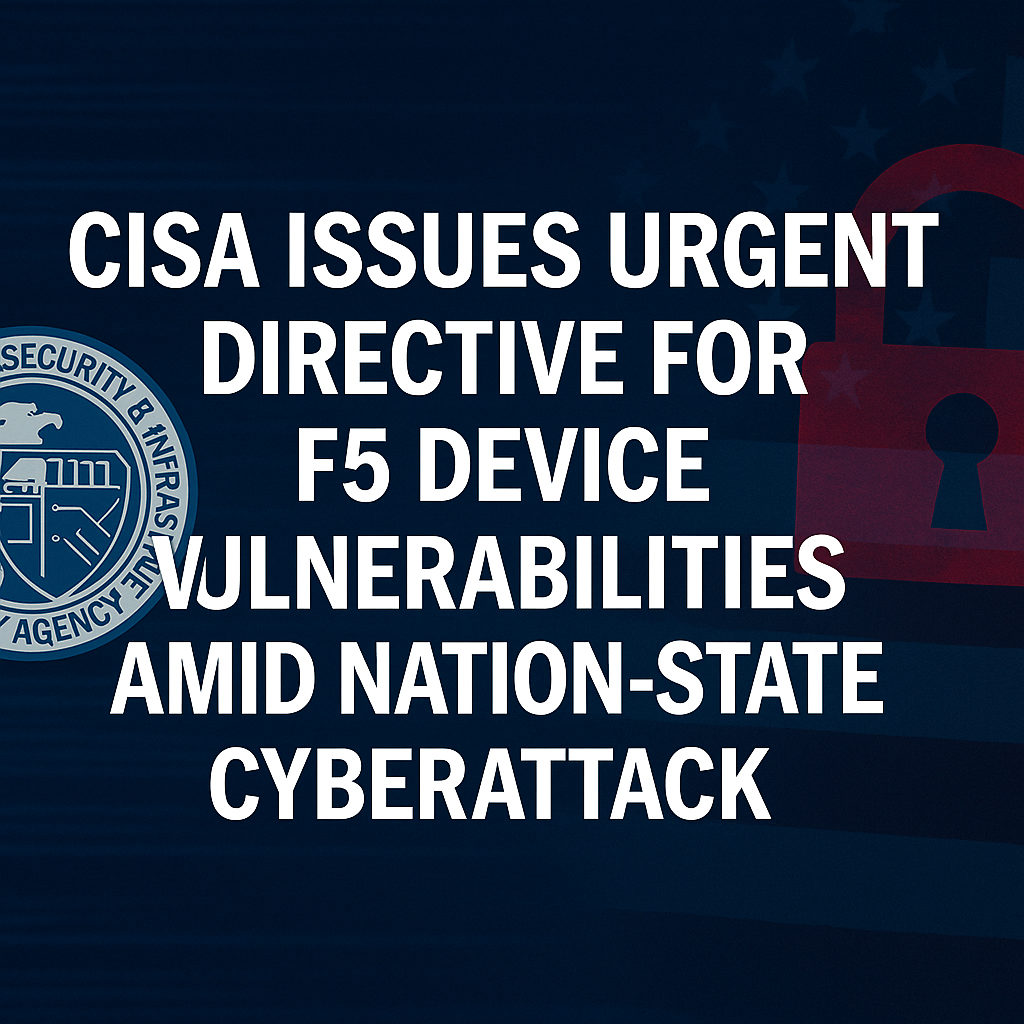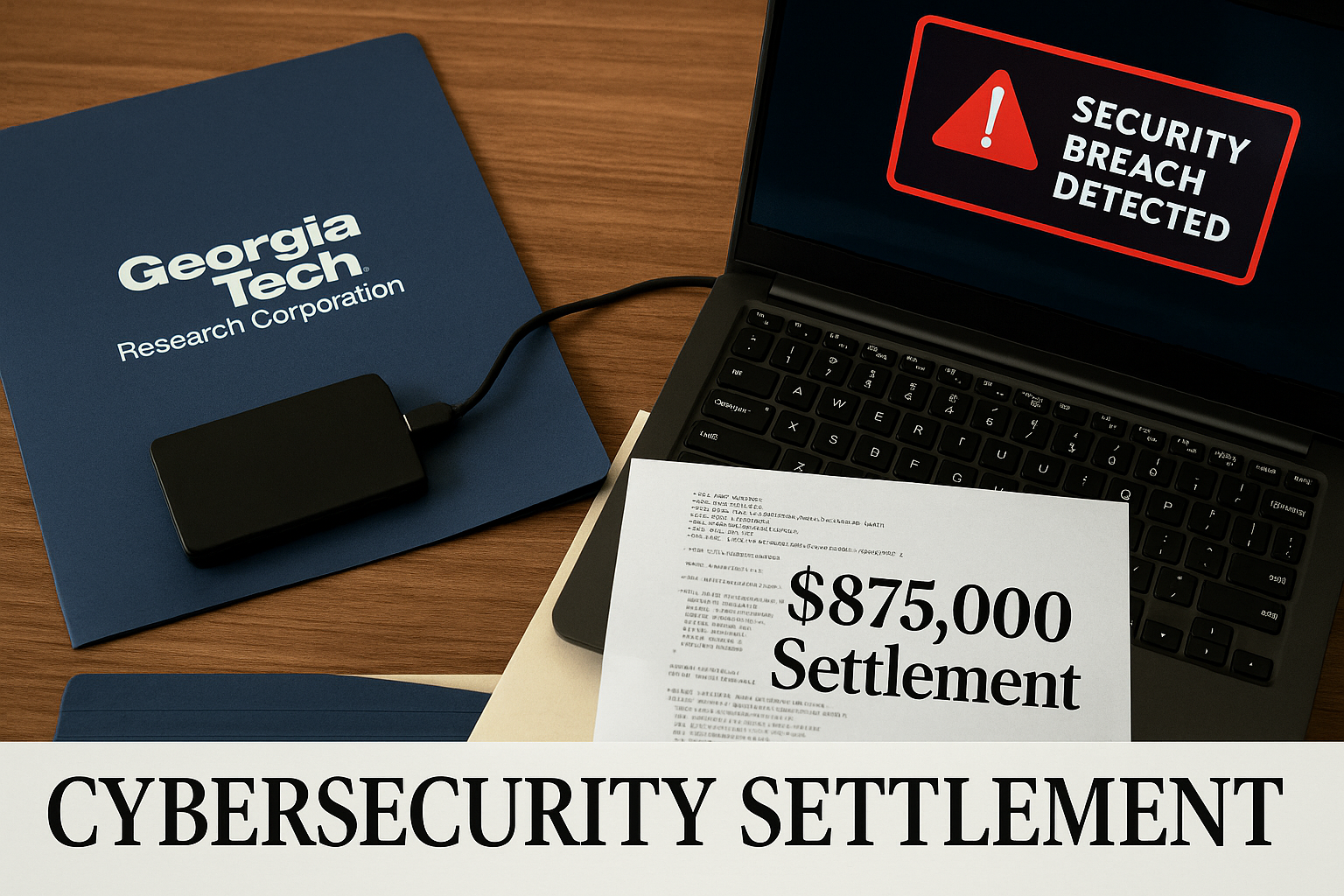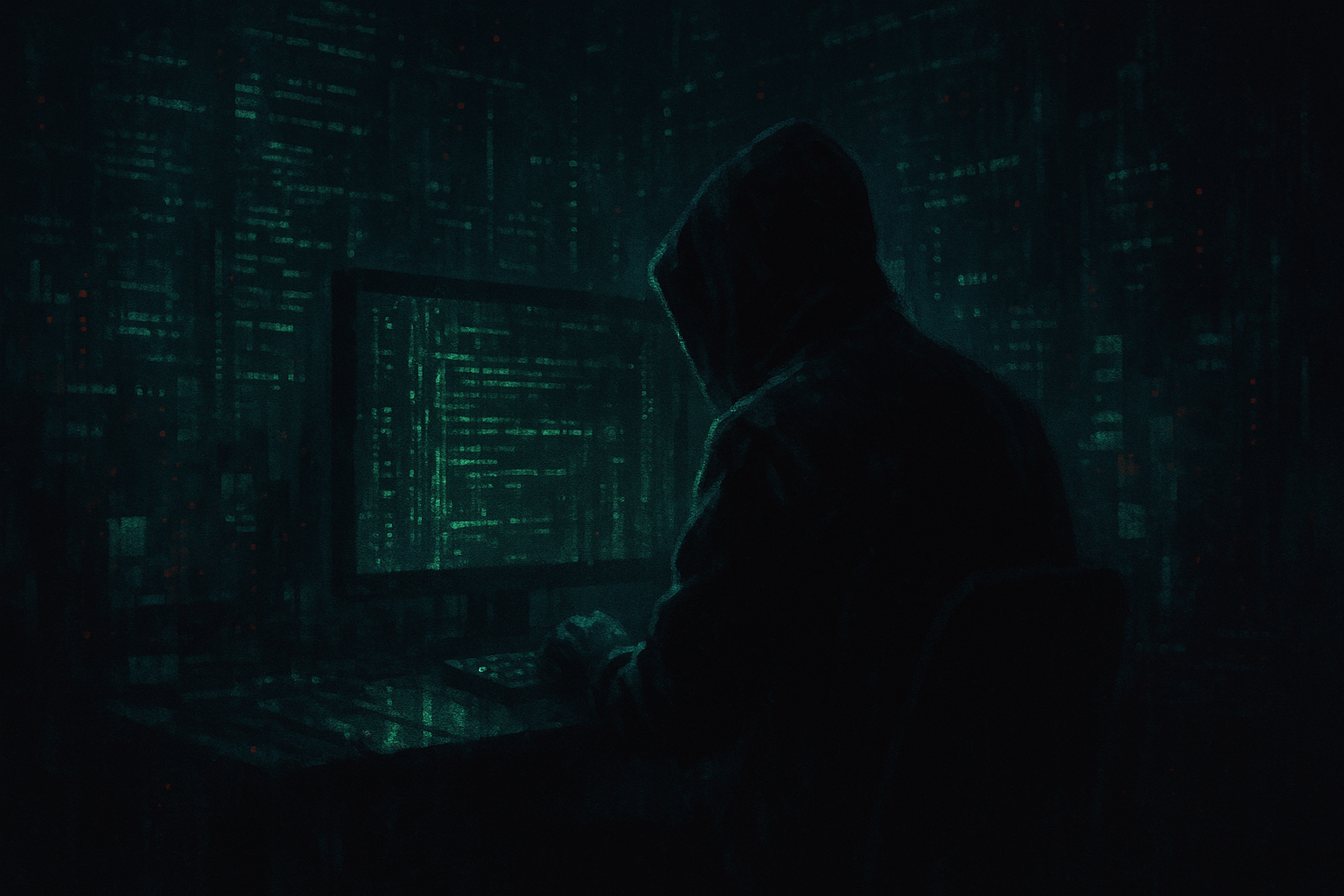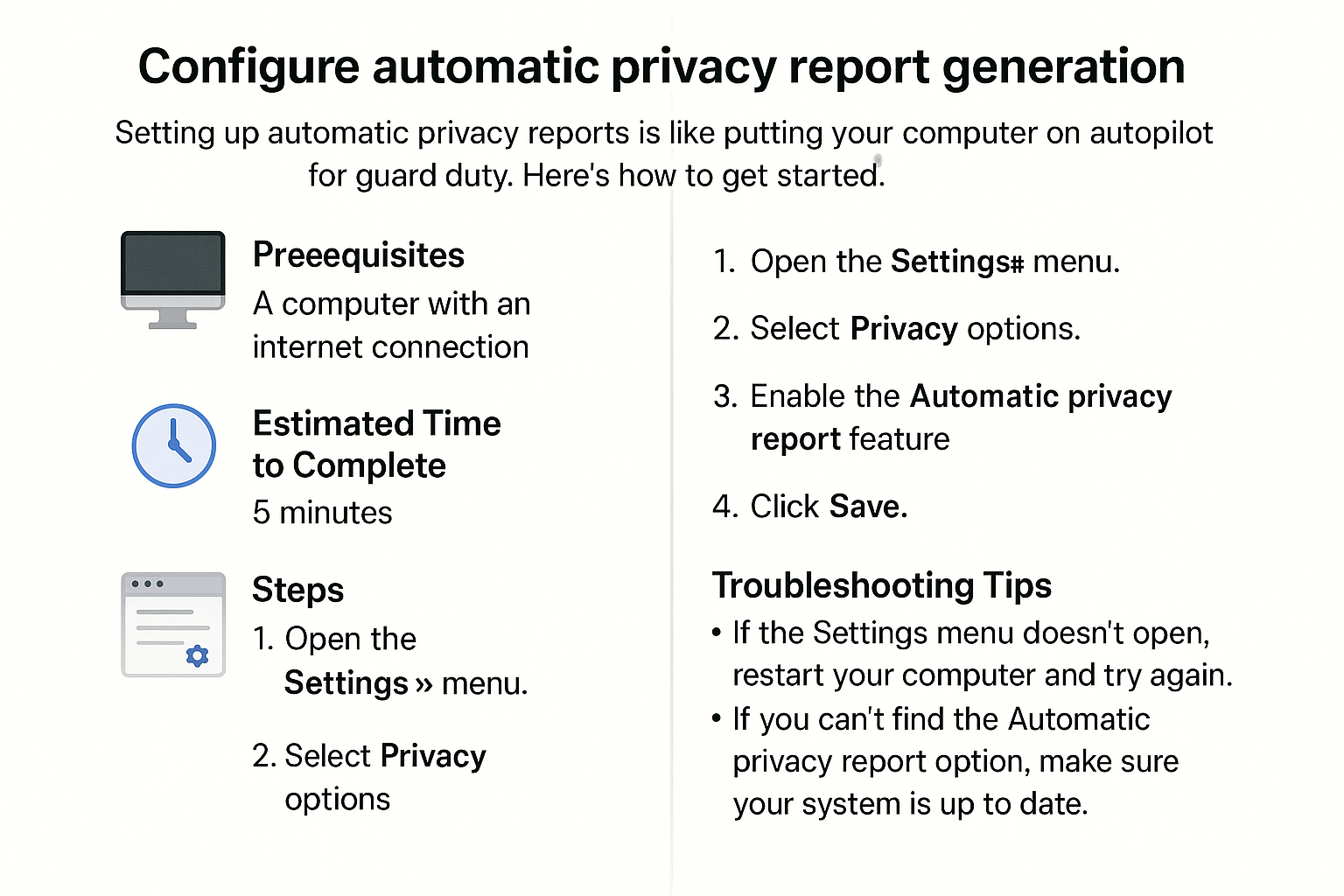A Wake-Up Call for Cybersecurity: In Recent Attacks, How Safe Are We?
Imagine waking up one day to discover that your favorite car manufacturer has halted production due to a mysterious cyber incident, leaving thousands of employees and suppliers in uncertainty. This was the stark reality for Jaguar Land Rover employees and stakeholders when the company announced a pause in its operations due to an ongoing forensic investigation into a cybersecurity breach. Even for a giant in the automotive industry, the rapid escalation of cyber threats has become an undeniable concern.
In a similar vein, American Water found its systems compromised, leading to a temporary shutdown of vital services. "This is a wake-up call," noted one cybersecurity expert, highlighting the fragility of digital infrastructures across industries.
As cyberattacks become more frequent and sophisticated, it raises pressing questions: What lessons can we learn from these unfortunate events? How do these incidents affect the daily lives of consumers? And, crucially, how can you protect yourself in this increasingly hostile digital environment?
Timeline of Events
Jaguar Land Rover Attack
- September 16, 2025: The company announces the extension of a production halt until September 24, revealing ongoing investigations into a cyber incident that had disrupted operations.
- Employees and suppliers are informed of the extended pause as forensic examinations proceed.
American Water Cyber Incident
- October 3, 2024: American Water detects unauthorized activity in its networks, leading to immediate disconnections to safeguard customer data and environmental safety.
- October 10, 2024: The company announces that its customer portal, MyWater, has been securely restored, and that no water or wastewater services were compromised.
These incidents, though separate, intertwine in a shared narrative of vulnerability and the stakes involved in cybersecurity today.
Technical Details (in Plain English)
Both incidents illustrate common attack methodologies utilized by cybercriminals. For Jaguar Land Rover, the specifics of the attack remain classified, but such breaches usually involve phishing schemes, malware deployments, or ransomware attacks that encrypt vital data, crippling operations until payment is made or a solution is found.
American Water’s reaction underscores a critical method in cybersecurity: proactive disconnection of systems to prevent unauthorized access during an attack. This immediate response can limit damage significantly and protect sensitive data from being stolen or compromised.
"Malicious actors often look for vulnerabilities in systems to exploit," explained a cybersecurity analyst. While such technical hitches might sound complex, they remind us of the fundamental need for vigilance and preparedness.
Global Context & Comparisons
These incidents are part of a troubling trend in cybersecurity. Globally, businesses face a surge in cyberattacks — the 2023 Cybersecurity Ventures report projected that ransomware attacks alone would cost the world $265 billion annually by 2033.
Recent high-profile cases, including the Pegasus spyware, have highlighted not just individual company failures but systemic issues in protecting digital infrastructure.
Attempts to bridge the gap between advanced technology and everyday security measures are crucial. As cybercriminals become more adept at targeting critical sectors, companies like Jaguar Land Rover and American Water serve as reminders of the fragile state of our digital economy.
Reactions & Voices
The response from both Jaguar Land Rover and American Water showcases the delicate balance companies must maintain between transparency and operational security. Their communication reflects both concern for clients and a commitment to enhancing security. As one renowned cybersecurity researcher put it, “Organizations need to ensure they’re not just reacting to incidents, but proactively strengthening their defenses.”
Law enforcement agencies have become increasingly involved in these investigations, illustrating that the battle against cybercrime requires collaboration across sectors.
Why It Matters
For everyday users, these incidents present deeper implications.
- Job Security: A pause in production at Jaguar Land Rover not only affects employees but also their families and communities.
- Trust: Consumers depend on services like water supply for daily living; any hint of threat destabilizes public trust in these essential services.
- Financial Implications: When major companies experience disruptions, the ripple effects on stock market performances and supplier businesses can be profound.
“Every customer should be concerned; every incident has the potential to affect services we rely on,” an industry analyst noted. Ultimately, the average consumer has a vested interest in the robustness of a company’s cybersecurity measures.
What Readers Can Do
So, what can you do to protect yourself? Here are some practical takeaways:
- Stay Informed: Regular updates from your service providers can help you stay ahead of potential issues.
- Use Multi-Factor Authentication (MFA): Adding an extra layer of security reduces the chance of unauthorized access.
- Update Your Passwords Regularly: Create complex passwords and use unique ones for different accounts.
- Practice Network Hygiene: Keep all your devices and software updated to patch any vulnerabilities.
By implementing these steps, you can significantly bolster your defenses against potential digital threats.
Closing Thoughts
As we navigate through an increasingly digital world, incidents like those faced by Jaguar Land Rover and American Water serve as stark reminders of the risks involved and the need for enhanced security measures. Never before has the adage "better safe than sorry" rung more true.
With cybercriminals continuously adapting their tactics, it is essential to prioritize our cyber hygiene. Just like locking your front door, investing time in digital security is a necessity for both individuals and organizations. The world may be digital-heavy now, but our safety should be a shared responsibility. As the saying goes, it’s better to be proactive than reactive — let's not wait for the next wake-up call.
